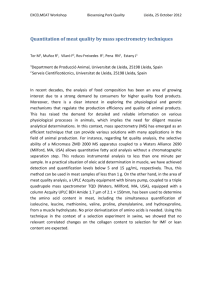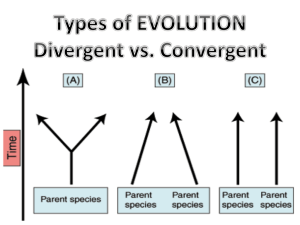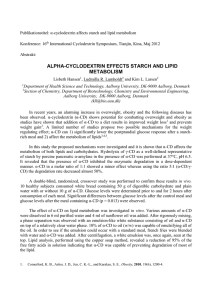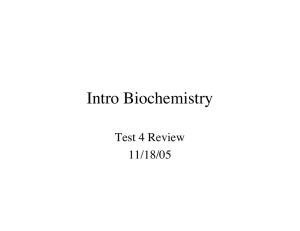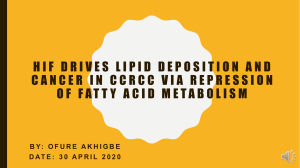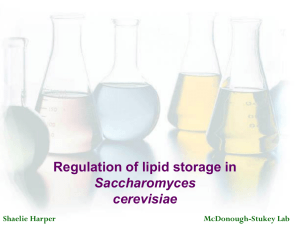Genetic mechanisms underlying lipid metabolism - BDPorc
advertisement
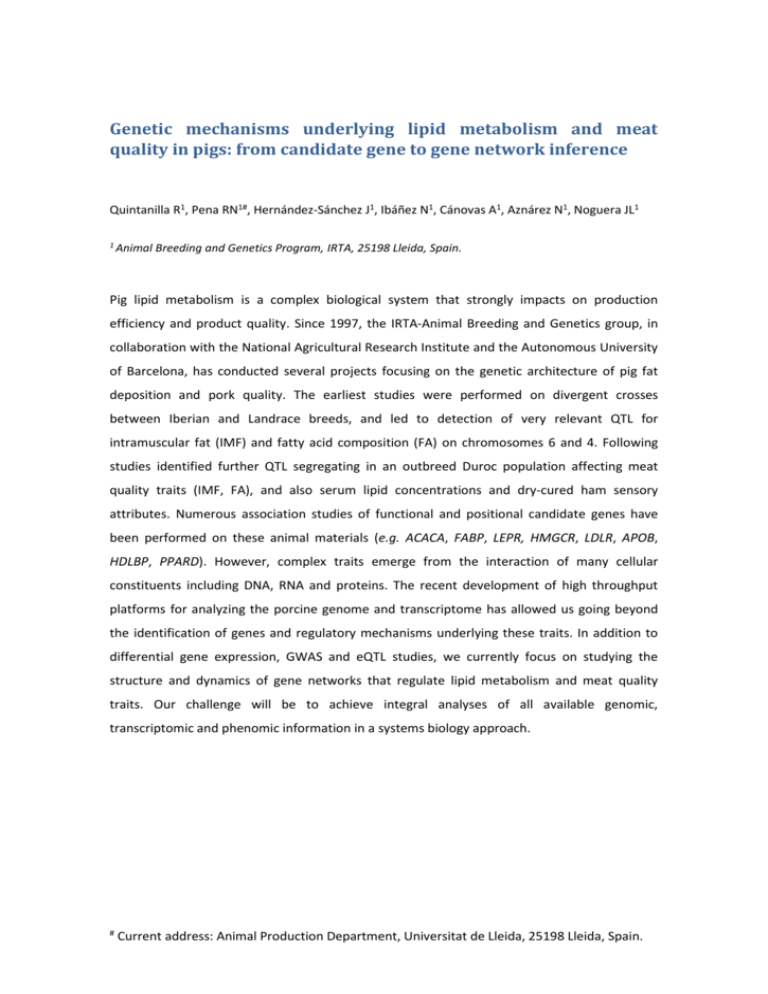
Genetic mechanisms underlying lipid metabolism and meat quality in pigs: from candidate gene to gene network inference Quintanilla R1, Pena RN1#, Hernández-Sánchez J1, Ibáñez N1, Cánovas A1, Aznárez N1, Noguera JL1 1 Animal Breeding and Genetics Program, IRTA, 25198 Lleida, Spain. Pig lipid metabolism is a complex biological system that strongly impacts on production efficiency and product quality. Since 1997, the IRTA-Animal Breeding and Genetics group, in collaboration with the National Agricultural Research Institute and the Autonomous University of Barcelona, has conducted several projects focusing on the genetic architecture of pig fat deposition and pork quality. The earliest studies were performed on divergent crosses between Iberian and Landrace breeds, and led to detection of very relevant QTL for intramuscular fat (IMF) and fatty acid composition (FA) on chromosomes 6 and 4. Following studies identified further QTL segregating in an outbreed Duroc population affecting meat quality traits (IMF, FA), and also serum lipid concentrations and dry-cured ham sensory attributes. Numerous association studies of functional and positional candidate genes have been performed on these animal materials (e.g. ACACA, FABP, LEPR, HMGCR, LDLR, APOB, HDLBP, PPARD). However, complex traits emerge from the interaction of many cellular constituents including DNA, RNA and proteins. The recent development of high throughput platforms for analyzing the porcine genome and transcriptome has allowed us going beyond the identification of genes and regulatory mechanisms underlying these traits. In addition to differential gene expression, GWAS and eQTL studies, we currently focus on studying the structure and dynamics of gene networks that regulate lipid metabolism and meat quality traits. Our challenge will be to achieve integral analyses of all available genomic, transcriptomic and phenomic information in a systems biology approach. # Current address: Animal Production Department, Universitat de Lleida, 25198 Lleida, Spain.
